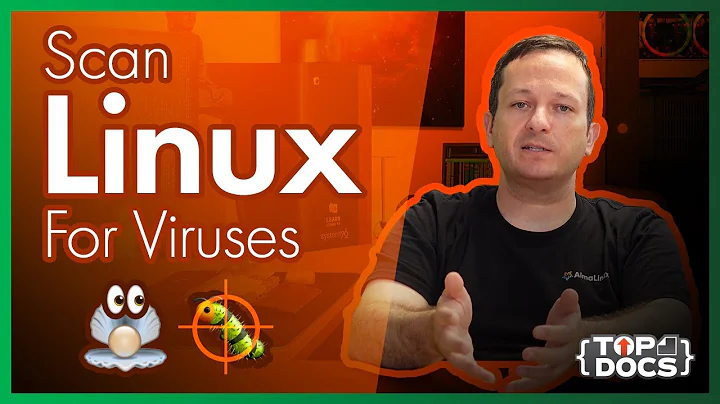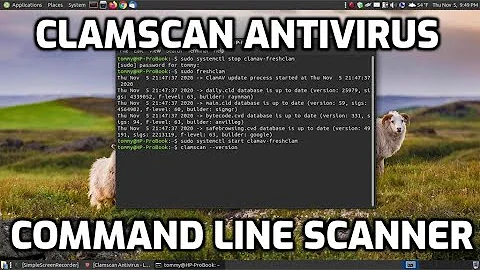How to scan my flash drives for Windows viruses while on Linux? (Not ClamAV)
Solution 1
Suggest installing BitDefender for Linux which offers a free personal use license.
Solution 2
If it is just the flash drives you want to wipe of the viruses, just copy the files (the ones you know which don't contain viruses) off them, and use GParted to wipe them.
Making sure that it is the memory stick you are wiping, unmount it, and delete the partitions:

Then go to Device, and Create Partition Table.... Set to make a msdos table, and click Apply.
You can then create a new FAT32 partition, so that it will work with both Windows and Linux.

All this should effectively remove all date from the memory sticks, making sure there are no viruses.
Hope this helps 
Solution 3
You could install an antivirus product on Ubuntu such as Comodo Antivirus For Linux (Free) or the previously mentioned ClamAV (Free), or you could install wine and setup an antivirus product inside of it such as Symantec Endpoint Protection (not free) or Comodo Internet Security (Free), just make sure to disable any kind of auto-scan capability (if possible don't install it to begin with). You will of course have to enable access from wine to the usb stick via wines virtual letter drives.
How to install wine:
How to install and configure Wine?
How to install Comodo Antivirus For Linux:
http://postbin.djun.net/pages/article11.php
Related videos on Youtube
Cristiana Nicolae
Updated on September 18, 2022Comments
-
 Cristiana Nicolae over 1 year
Cristiana Nicolae over 1 yearI know that maybe it sounds like a duplicate but it isn't because I see that the other questions describe totally different situations than mine. Apart from the other users, I don't have a Windows partition on my netbook (yes, I am a newbie but I had the courage to "forget" about Windows) and I don't have any CD-RW drive on it. So I don't need to scan my Windows partition from Ubuntu neither I can use any Antivirus CD like some people recommend.
My problem is, I hope, simpler. I use a lot of flash drives to store data, and I have used it since my "Windows times". But now I have become unaware of the possible viruses that can be "stored" on it. Yesterday I have plugged in several of my flash drives on a freshly installed Windows XP system with an up-to-date Avast! Antivirus on it, and the antivisrus has discovered a dizzying number of viruses on my flash drives! While this doesn't affect me, it may affect others, because all of my friends are Windows users and they always call me to help them solve PC-related problems. So, I can't go to them and, unwillingly, "flood" their systems with viruses instead of helping them.
So I really need to keep my flash drives clean just in case. Note.
I don't think that using a Windows system to scan them is a good solution, although it might sound to be the easiest and most obvious. My mother's PC runs Windows XP but is an old PC, tricky and unreliable because it falls all the time.
ClamAV is not an option for me as I have a very bad experience related to it. I have used it in the spring to scan a Windows partition (on a dual boot PC) and the result was a total mess and I had to reinstall both operational systems again. Since that day, I simply hate ClamAV as I am convinced that it erases even good and clean files and all it does is just a mess.
So, if you have a a solution apart of those two and keeping in mind my lack of CD drive, then your advice would be very much appreciated.
-
 ASCIIbetical over 10 yearsWhat might I say regarding the same is very easy : @Cristiana. Mount the
ASCIIbetical over 10 yearsWhat might I say regarding the same is very easy : @Cristiana. Mount theusbin/media/Your USBand then open it. Keep all the folders and files you recognize, Delete any suspicious file/folder. Specially with Characters in names etc etc. Its more of a self know approach to defend against viruses. Imho, i dont think that will cause any damage to system files in pen drive. -
 Panther over 10 yearsI think you will have a similar experience with all Linux anti-virus programs. AS far as I know, none of the linux anti virus programs "disinfect" files, they only offer to delete infected files. You have to use an antivirus program to identify the problem, then search for a solution. Sometimes you can disinfect, sometimes you have to delete files, and sometimes you have to do a fresh install. The problem is in the nature of viruses, and not anti virus software, and as such, clamav is a good as any other.
Panther over 10 yearsI think you will have a similar experience with all Linux anti-virus programs. AS far as I know, none of the linux anti virus programs "disinfect" files, they only offer to delete infected files. You have to use an antivirus program to identify the problem, then search for a solution. Sometimes you can disinfect, sometimes you have to delete files, and sometimes you have to do a fresh install. The problem is in the nature of viruses, and not anti virus software, and as such, clamav is a good as any other. -
 Cristiana Nicolae over 10 years@ASCIIbetical Thanks for the advice! As I have told already, I am a newbie. I don't know, for example, how to mount a flash drive if it doesn’t mount "by itself" automatically. Anyway, till now, I didn't had to know, because, every time I plug in a flash drive, its icon appears on the desktop. I am not sure that I can recognise any suspicious file because I know what I have put on those drives and I see only what I have put. So, if there is any suspicious file or folder, I suppose, there are many chances to be somehow, invisible, I think. Anyway, I'll study this aspect more.
Cristiana Nicolae over 10 years@ASCIIbetical Thanks for the advice! As I have told already, I am a newbie. I don't know, for example, how to mount a flash drive if it doesn’t mount "by itself" automatically. Anyway, till now, I didn't had to know, because, every time I plug in a flash drive, its icon appears on the desktop. I am not sure that I can recognise any suspicious file because I know what I have put on those drives and I see only what I have put. So, if there is any suspicious file or folder, I suppose, there are many chances to be somehow, invisible, I think. Anyway, I'll study this aspect more.
-
 Cristiana Nicolae over 10 yearsIt also said that "Comodo Application Agent is not running!" and, apparently, because of that I could not update the virus database.
Cristiana Nicolae over 10 yearsIt also said that "Comodo Application Agent is not running!" and, apparently, because of that I could not update the virus database. -
 Cristiana Nicolae over 10 yearsAs I wonted to solve the problem of updating the virus signature, I have followed the tutorial from your link and typed in the terminal "sudo /opt/COMODO/post_setup.sh". But it turned out to be not enough, so, Comodo itself suggested, I have also typed this line after the previous: "/etc/init.d/cmdavd restart". The result is that now, the virus signature database is updating as we speak...
Cristiana Nicolae over 10 yearsAs I wonted to solve the problem of updating the virus signature, I have followed the tutorial from your link and typed in the terminal "sudo /opt/COMODO/post_setup.sh". But it turned out to be not enough, so, Comodo itself suggested, I have also typed this line after the previous: "/etc/init.d/cmdavd restart". The result is that now, the virus signature database is updating as we speak... -
 Cristiana Nicolae over 10 yearsI have scanned with Comodo one of my flash drives, a multi-boot drive with no remanence having Knoppix, Kubuntu, Easypeasy and Bodhi on it. All, except the last one, seem to be infected with 3 malwares. Here are the results: Packed.Win32.MUPX.Gen@129019204, Virus.Win32.Sality.Gen@84752119 and Win32.Neshta.A@184948, the last one infecting several files, including... wubi.exe (!). Could that be a false positive? I did not cleaned them because I'm not sure what to do about it. All those Linux distros are genuine, downloaded from their websites.. How is this possible to find malware in them?
Cristiana Nicolae over 10 yearsI have scanned with Comodo one of my flash drives, a multi-boot drive with no remanence having Knoppix, Kubuntu, Easypeasy and Bodhi on it. All, except the last one, seem to be infected with 3 malwares. Here are the results: Packed.Win32.MUPX.Gen@129019204, Virus.Win32.Sality.Gen@84752119 and Win32.Neshta.A@184948, the last one infecting several files, including... wubi.exe (!). Could that be a false positive? I did not cleaned them because I'm not sure what to do about it. All those Linux distros are genuine, downloaded from their websites.. How is this possible to find malware in them? -
 Cristiana Nicolae over 10 yearsThank you K7AAY! After a painfully complicated process, I have managed to install and use Bit Defender on my netbook. I have even managed to add Bitdefender to the right-click menu in order to be able to easily use it. Anyway, the main idea is that I have successfully scanned two of my flash drives with BitDefender and it have found several viruses and trojans where I was expecting the least. Till now, BitDefender is the best and I am pleased with it. But I'll try other apps too in order to get an objective view.
Cristiana Nicolae over 10 yearsThank you K7AAY! After a painfully complicated process, I have managed to install and use Bit Defender on my netbook. I have even managed to add Bitdefender to the right-click menu in order to be able to easily use it. Anyway, the main idea is that I have successfully scanned two of my flash drives with BitDefender and it have found several viruses and trojans where I was expecting the least. Till now, BitDefender is the best and I am pleased with it. But I'll try other apps too in order to get an objective view. -
 Cristiana Nicolae over 10 yearsWhile this was not what I was looking for (because I wont to clean a flash drive without having to erase it) your suggestion, wilf, is good to be known. I am sure that people who wont to extra security will use it. I'll keep it in mind for the future when I'll wont to write something on a flash drive from scratch.
Cristiana Nicolae over 10 yearsWhile this was not what I was looking for (because I wont to clean a flash drive without having to erase it) your suggestion, wilf, is good to be known. I am sure that people who wont to extra security will use it. I'll keep it in mind for the future when I'll wont to write something on a flash drive from scratch.




